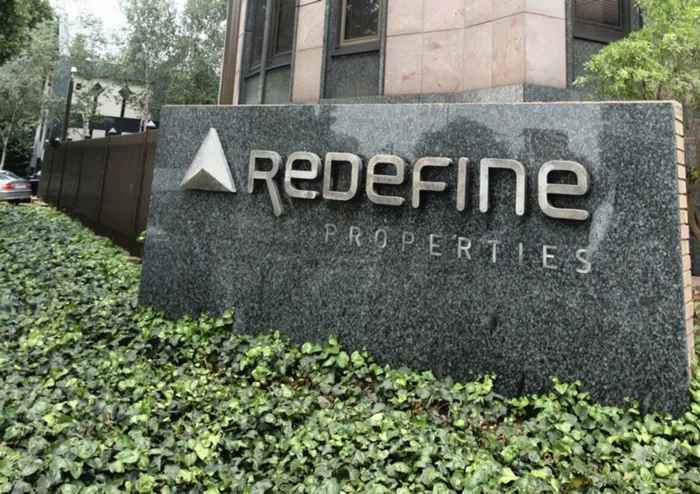
Redefine Properties, which ended its 2025 financial year on a strong note with its dividend up 7.8%, has forecasted that distributable income should grow between 4% and 6% in its 2026 financial year.
Image: Simphiwe Mbokazi/African News Agency (ANA)
Redefine Properties, which marked another year of its multi-year transformation strategy with a 7.8% rise in distributable income, has detected early signs of rising business and consumer confidence in South Africa.
The JSE-listed diversified property REIT’s portfolio proved resilient again over the year to August 31, 2025, with retail and industrial strength offsetting a still-muted office sector. The dividend increased 7.8% to 45.84 cents per share.
“Our portfolio mix really paid off this year. Retail and industrial delivered very pleasing results, offsetting the structural headwinds still facing offices,” said Chief Operating Officer Leon Kok.
CEO Andrew König said that early signs of rising business and consumer confidence were evident in leasing activity and investor sentiment, supported by the country’s recent removal from the FATF greylist and prospects of a sovereign credit rating upgrade.
“The finalisation of South Africa’s greylisting exit is significant – it will translate into lower costs of capital, attract more foreign investment, and deepen domestic liquidity. We’re already seeing the bond market pricing that in,” said König.
“Add to that the Reserve Bank’s firm inflation targeting stance and the possibility of a rating uplift next year, and you have the makings of tangible, rising optimism. Those tailwinds, coupled with Redefine’s strengthened balance sheet, position us well to capture growth as sentiment improves,” he added.
Chief Financial Officer Ntobeko Nyawo said in a statement that the broader macro-ecnomic turn was set to benefit well-capitalised corporates.
“Our balance sheet is already in a strong position, with an interest-cover ratio of 2.2 times, 83% of debt hedged, and a weighted average cost of debt reduced to 7%. This gives us the flexibility to fund growth while maintaining liquidity prudence,” he said.
“We’ve seen property asset values lift by R1.9 billion in South Africa and hold steady in Poland. Our loan-to-value ratio is back within range. The operating profit margin improved against a backdrop of only moderate revenue growth, testament to efficiency gains coming through the business,” said König.
“Operating fundamentals are stabilising, with occupancies up, renewal reversions improving, and asset values across all three sectors showing year-on-year gains. Even office valuations have turned positive on a total-basis view,” he added.
Retail renewal reversions moved into positive territory (1%), and trading densities improved, with tenants’ rental-to-turnover ratios at 7.4%. Industrial vacancies were negligible at 2.7%, supported by buoyant logistics and warehousing demand.
“Industrial continues to perform well. We’re seeing strong demand, particularly for logistics and warehousing space close to major transport corridors, where constrained supply is pushing rentals higher. It’s a sector we’re keen to expand on, especially where we have developable land,” he said.
On the retail front, tenant health remained solid, and the grocer anchors had supported the turnover growth. “We’ve seen marked improvement in their trading performance,” König said.
In the office sector, occupancy was stable at 87%, and there was renewed deal activity.
“Business confidence drives office demand, and the deal activity we’re seeing suggests sentiment is stabilising. Certain nodes, particularly in the Western Cape, have performed exceptionally well as provincial stability and governance continuity have translated into the lowest vacancy levels in the country,” he said.
König said a swift, peaceful, and conclusive local election outcome would be a meaningful catalyst for offices, particularly in Gauteng, by restoring certainty around municipal service delivery and enabling businesses to commit to space.
Redefine’s Polish platform (EPP), whose retail platform accounts for roughly 28% of group assets, delivered a strong, stable performance. EPP’s core retail portfolio maintained a 99.4% occupancy, while European Logistics Investment’s (ELI) logistics operations doubled distributable income contributions to R214m, thanks to rising occupancies and higher market rentals.
“Poland enjoys GDP growth roughly three times that of South Africa and very low unemployment. That’s created a robust consumer market,” says König.
König concluded said while Redefine’s share price has delivered a 310% total shareholder return over five years, this recovery reflects more than market momentum – it underscores the success of a focused strategic reset.
“Five years ago, our strategy was scattered across multiple geographies and asset classes. Today, we’re focused, disciplined, and in control of every asset we manage. That focus has changed how Redefine looks and feels, and it shows in our performance,” he said.
BUSINESS REPORT